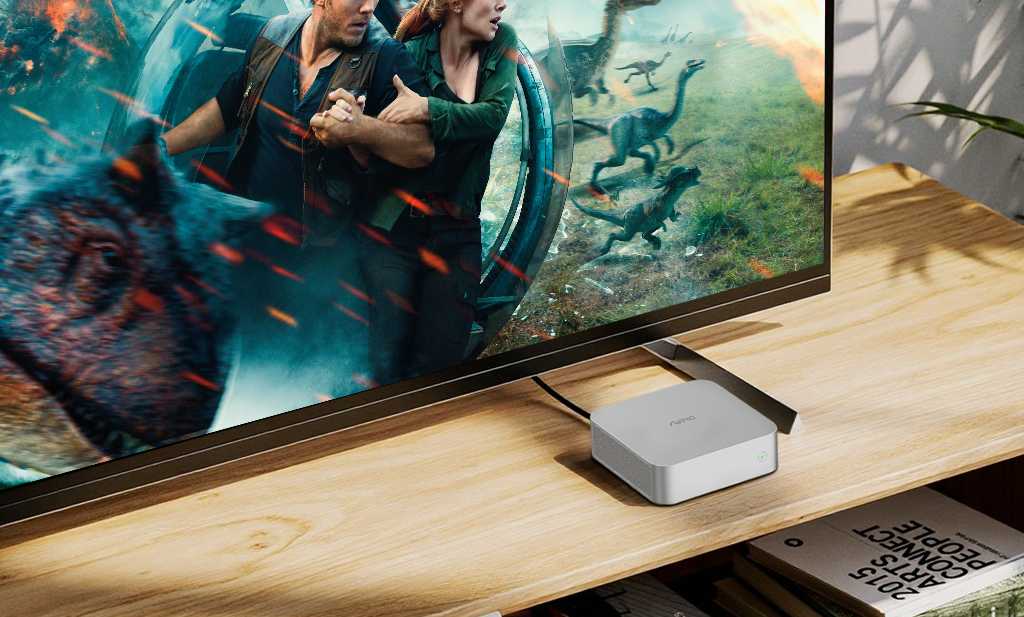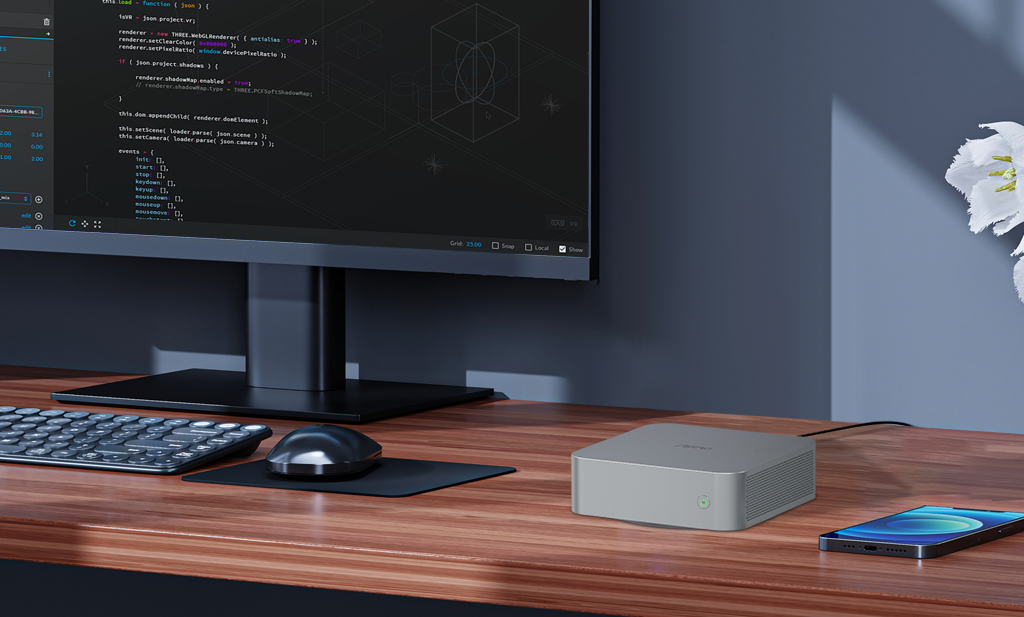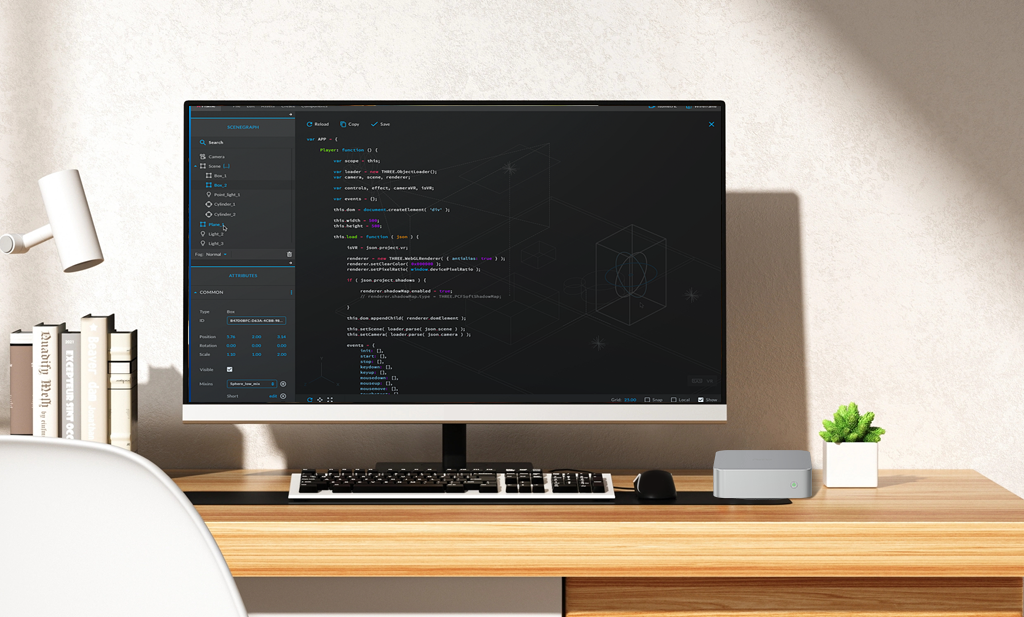When you are dealing with storing your files, photos, or backups at home or in a small office, Network Attached Storage, also called NAS, has become a reliable option. But these devices are not all the same.
When it comes to NAS, you will often hear two terms: All-in-One NAS and DIY NAS. Differences between the devices aren’t just technical. It also affects the way you manage your data and set up your device. Moreover, it also impacts even on how much money and time you invest.
In this article, we will learn both types in a simple way that helps you figure out which one suits your needs best. We will also discuss the Aiffro K100 All-SSD NAS, which blends DIY flexibility with solid performance.
What Is NAS? Give Its Quick Intro.
NAS stands for Network Attached Storage. This device is like a small computer that connects to your network. Its main purpose is to use for storing data. NAS can be accessed by many users or devices at the same time, anywhere from your house, unlike other USB drives or external hard disks.
For Example, if you are a photographer, you can store photos on a NAS and access them from your editing laptop, your phone, or even your smart TV. There is no need to use cloud services to back up your family’s phones or your business files.
All-in-One NAS? What Does It Mean?
An All-in-One NAS is a complete system that’s always ready to go out of the box. It’s just like buying a smartphone that you don’t have to build. You just turn it on and set it up. These systems have their own operating system and apps.
Some of them have pre-installed storage devices, while others offer you to add your own. They often include software for file sharing, backups, media streaming, and even some security tools.
Common Features of All-in-One NAS:
- Pre-installed OS and easy interface
- Quick setup with no need to install software manually
- Comes with support and regular updates
- Popular brands include Synology and QNAP
Who Should Use It?
It is a good choice if you’re not very technical or just want something that works without much effort. Many small businesses and home users prefer all-in-one systems for their simplicity.
Downsides
You usually pay more for convenience. Locked into the brand’s hardware and software, which means you have no other choice. If you want to upgrade or try new features, you may hit some limits.
DIY NAS Allow You To Do It Yourself, But With Freedom
A DIY NAS is exactly what it sounds like: you put it together yourself. You choose the hardware and the operating system. You are the one who decides how everything works.
You can build your own DIY NAS using an old computer. But if you don't want too many complications, you can buy a small device like the Aiffro K100. It offers powerful hardware but leaves the software choice to you.
- DIY NAS is different. How? Check this.
- You install the operating system yourself
-
You pick the software
- TrueNAS
- FreeNAS
- Ubuntu
- Windows
- Usually more affordable if you already have some hardware
- You decide how to set up file sharing and backup tools.
- You can decide on security features.
It's Perfect For Those Who
- Like to tinker or want more control
- Want to avoid the high cost of branded systems while getting better performance
Any Drawbacks?
A slight difficult task is setting up. This might be a drawback for you because you have to understand how to install an OS and configure your network. At times, you need to troubleshoot the device if something doesn't work.
All-in-One NAS vs DIY NAS
I have made a quick comparison here to help with your decision:
|
Feature |
All-in-One NAS |
DIY NAS |
|
Setup |
Quick, simple |
Manual, needs knowledge |
|
OS |
Pre-installed |
User installs it |
|
Flexibility |
Limited to brand |
Fully flexible |
|
Price |
Usually more expensive |
Can be cheaper |
|
Upgrade Options |
Limited |
Fully customizable |
|
Support |
Brand support included |
No official support |
|
Best For |
Beginners, small teams |
Tech users, hobbyists |
Is Aiffro K100 NAS a Reliable Choice for DIY NAS Enthusiasts?
Setting up your own DIY NAS but without the complexity of building hardware from scratch? It's possible with Aiffro K100 NAS, which offers a simple and powerful solution. It provides all the flexibility of a custom system without requiring the technical stress of sourcing and assembling parts. It doesn't come with a pre-installed OS like most all-in-one NAS options. So, it gives you a strong base to build your ideal setup.
Compact Size with Powerful Hardware
The Aiffro K100 comes in a small aluminum alloy case, which makes it easy to fit into any home or office space. Its size is small, but it offers impressive performance. Its key specs have
- Intel Alder Lake N100 processor (4 cores, 4 threads, up to 3.40GHz)
- 8GB LPDDR5 RAM (4800MHz)
- storage of 4 x M.2 2280 SSD slots (PCIe Gen3x2)
- Intel UHD Graphics (12th Gen)
-
Ports:
- 2 x USB 2.0
- 2 x USB Type-C 3.2 Gen2
- 1 x HDMI 1.4
- 1 x 2.5GbE RJ45 Ethernet
- 1 x Type-C DC input
This setup is more than enough for handling data backup and file sharing. You can enjoy media streaming and light virtualization tasks easily.
Full SSD Design for Speed and Silence
Aiffro K100 NAS has only SSD storage, not HDDs. With support for up to four M.2 NVMe drives, it offers:
- Faster read/write speeds
- Lower latency during file access
- No noise, since there are no moving parts
- Longer hardware lifespan
It's efficient in performance for users who are working with high-resolution videos and large photo libraries. Regular backups become easy as this setup significantly improves efficiency compared to HDD-based systems.
Why It's Ideal for DIY NAS Setups?
The K100 gives you more control because it isn't a typical all-in-one NAS. It doesn't come with a built-in operating system, but supports many popular platforms, including:
- TrueNAS
- FreeNAS
- Ubuntu
- Windows 11
- CentOS
- EulerOS
You simply install the OS that suits your needs and configure it according to your workflow.
Aiffro K100 is Best for Whom?
The Aiffro K100 is best for users who:
- Want DIY flexibility without building hardware
- Prefer choosing their own OS and software tools
- Need high-speed access to large files
- Run personal or small business servers
- Are photographers and video editors
- Are home office users
Not for Everyone, But Just Right for Many
A traditional all-in-one NAS is easy to handle for all people who need a true plug-and-play solution.
But mostly people need fast speed with freedom in terms of storage and hardware that's ready to go. It means something from the DIY NAS category. You can enjoy all this with the Aiffro K100 NAS.
It's one compact device and requires no assembly on arrival. It offers the right balance of fast speed and quiet operation with a flexible NAS platform you can truly call your own.
Conclusion
So, what's the right NAS for you? Would you decide, after all this discussion?
All-in-One NAS is a good choice if you want something quick and simple that offers the required support. DIY NAS is easy to set up and perfect for tech lovers who want to do things with their own hands. It adds better value and more flexibility.
The Aiffro K100 All-SSD NAS makes the DIY path easier. You don't have to build the hardware; it's already built and ready. You just add your SSDs and install the system you like.
And you're all set to use it with full features, from compact design and powerful performance to quiet operation, and gives you full control over your data.





Leave a comment
This site is protected by hCaptcha and the hCaptcha Privacy Policy and Terms of Service apply.